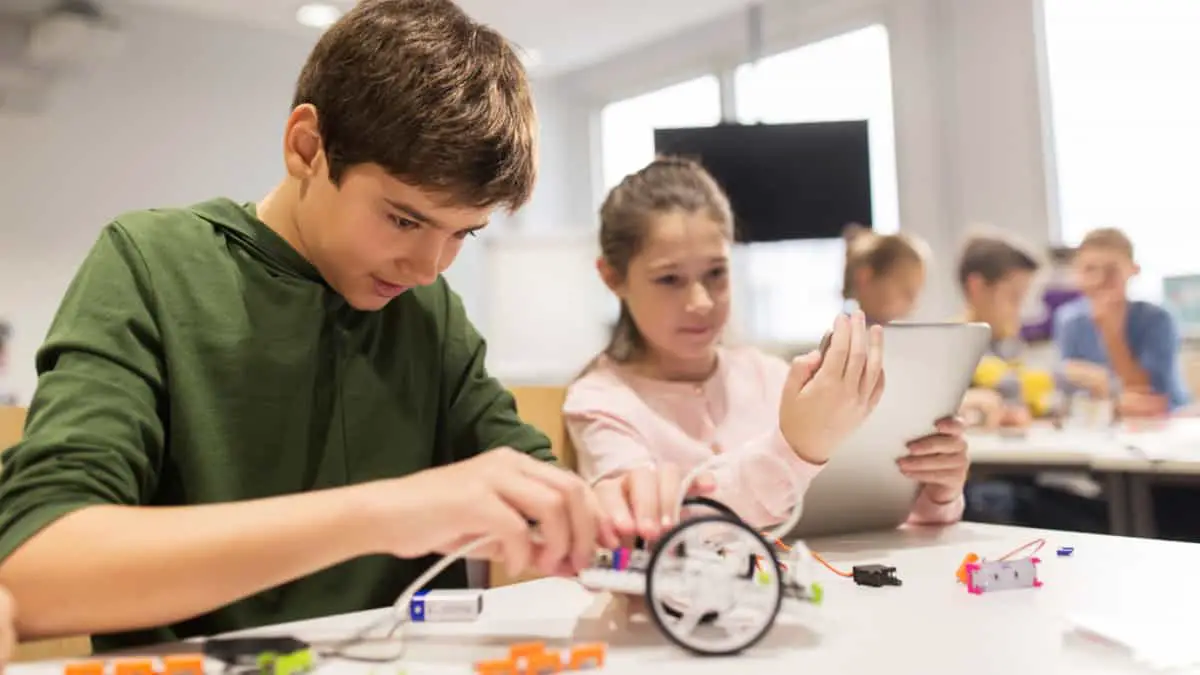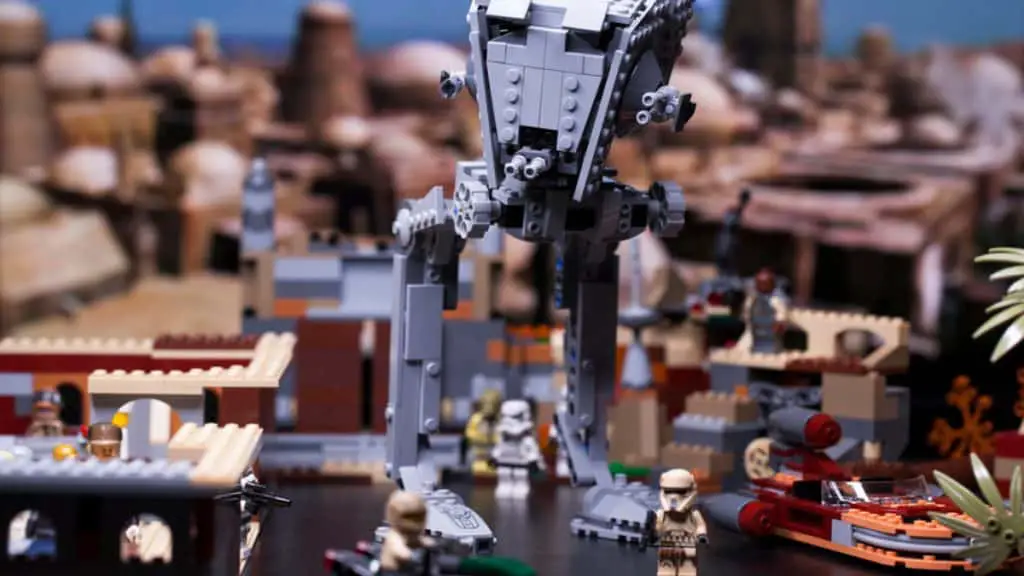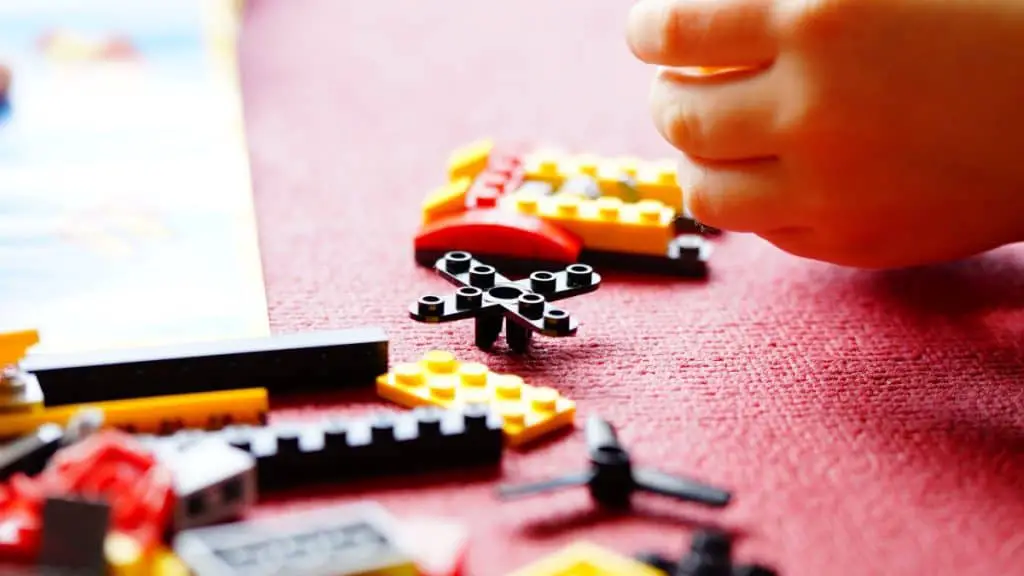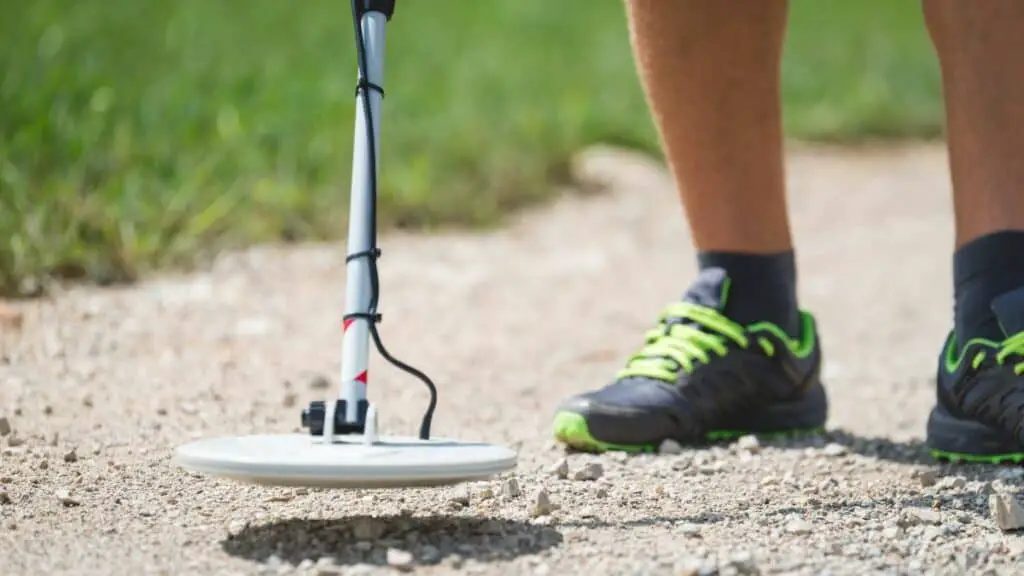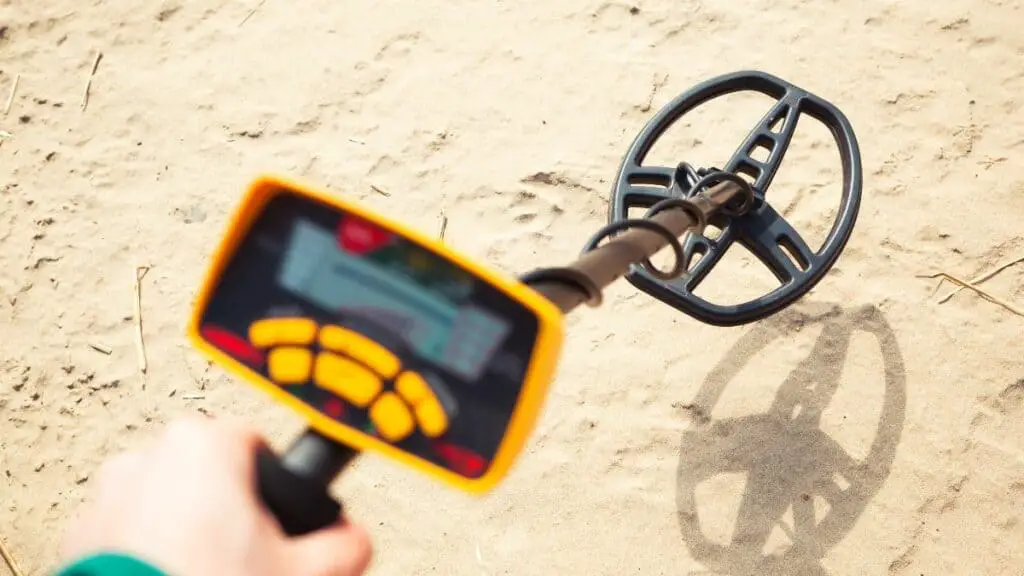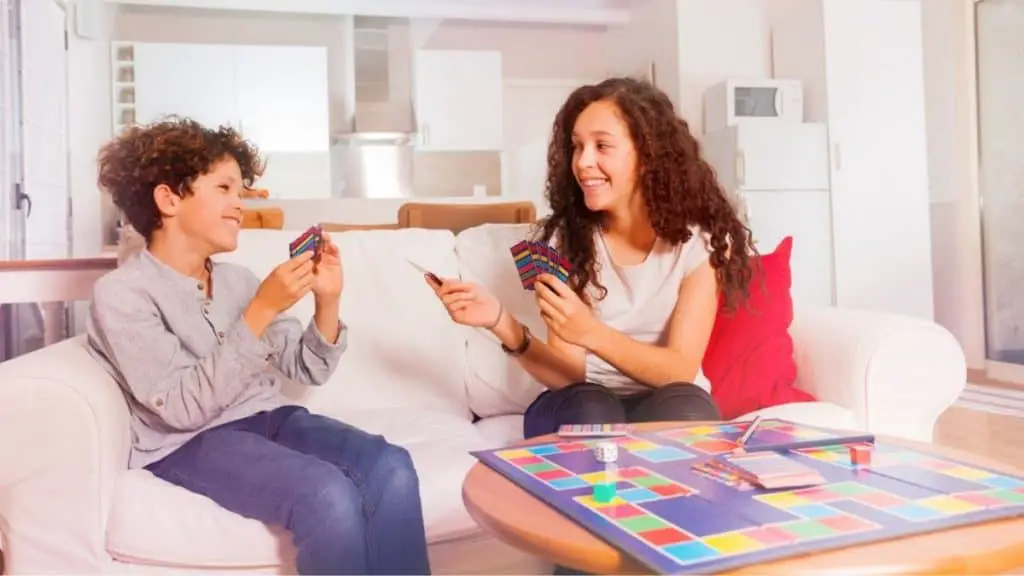8 Best Robot Toys for Kids: Our Ultimate Guide (2024)
The best robot toys for your kid are going to depend on what you want to do with them and how comfortable you or your kids are with the coding and apps that go along with it. This article pulls together some of the best products out there to help you decide.
We looked at age ranges, learning and progression, and usability. The Sphero RVR (pronounced “rover”) got our vote as the best overall. Keep reading to find out why!
Related post: Ultimate Guide to the Best STEM Toys 2024
Our Top Picks for Best Robot Toys
| IMAGE | PRODUCT | DETAILS |
|---|---|---|

|
Best overall Sphero RVR+
|
|

|
Best for Engineers LEGO Mindstorms
|
|
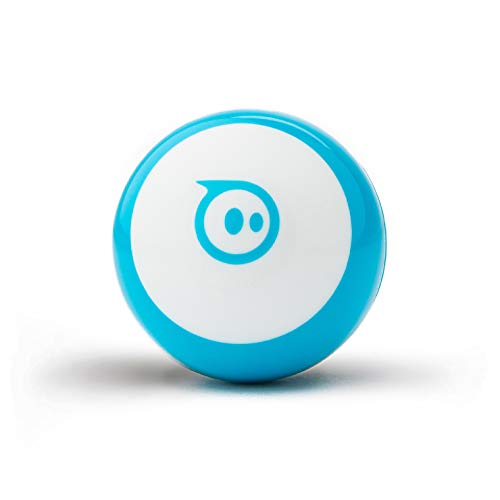
|
Budget Option Sphero Mini
|
1. Best Overall – Sphero RVR+

Sphero RVR+
The RVR can be driven right out of the box, is extremely programmable, and can be built on in so many ways.
[ Recommended age: 10+ years ]
The Sphero RVR+ is limited only by your imagination and your coding capabilities. You can learn the basics on the SpheroEdu app but once you’ve mastered how to code this all-terrain robot, the extremely hackable UART port means you can go way beyond what is in the box and code through JavaScript or Raspberry Pi. You can literally build whatever you want.
This is the kind of robot you can imagine Tony Stark has in his workshop. In fact, a driving robot arm is just one of the projects you can build on the Sphero RVR. Tough and tenacious, this is a brilliant robot for those who want a little off-roading speed with their coding.
Fair warning – this is a serious piece of kit and not ideal for the complete novice. Although the age range of the RVR is 10+ years, I would recommend this to someone who already has a good level of interest and knowledge in its STEM capabilities.
2. Best for Learning and Coding – Sphero BOLT

Sphero BOLT
An app-enabled robot that is very approachable for those that want more challenge in coding or just want endless hours of fun.
[ Recommended age: 8+ years ]
The Sphero BOLT is the latest programmable bot and the new auto-aim feature with in-built compass means no more having to manually direct – it will follow real-world map directions. The SpheroEdu app is easy to use and there seem to be no end to its learning potential.
Parents, beware of the Scream Drive option in the SpheroPlay app where it will zoom around faster the louder your kids scream at it. Although, when the battery wears down, you can get a break as it takes 6 hours to charge from flat – respite for you, but kids will need to learn a lot of patience with it.
3. Best Budget Option – Sphero Mini

Sphero Mini
Easy to use and great fun to play with before building to more programmable features.
[ Recommended age: 8+ years ]
The Sphero Mini is a cute little starter robot for those kids just getting into coding whilst wanting to play more than learn to begin with. Its best feature, without a doubt, has to be Face Drive. Get kids to use their weird and wonderful facial expressions to make the robot move – how many can you do?
Now when we say mini, we mean minuscule. Its tiny stature – about the size of a ping pong ball – makes this robot feel very breakable and potentially losable.
4. Best for Budding Engineers – LEGO Mindstorms
LEGO Mindstorms is designed for anyone who wants a heavy dose of engineering with their robotics. These robots are not for the faint of heart though. The box comes with 949 pieces to build before you even get to the programming stage.
Handy tip: buy yourself some clear boxes to help with sorting and assembling.
The LEGO robots also rely heavily on online content and you’ll need a decent bit of computer space to download all the manuals that go along with building the different components. There are even directions online to make a robot that will solve a Rubik’s Cube using the components provided.
One of the best things about LEGO Mindstorms is that it is compatible with other kits in the LEGO ecosystem, such as LEGO Boost. There are endless possibilities with the LEGO Mindstorms and you are limited only by LEGO’s imagination – which thankfully is vast!
5. Best Build and Code Set for Kids – LEGO Boost

LEGO Boost
Boost your kids’ knowledge and apply some very cool LEGO models that you can build together.
[ Recommended age: 7+ years ]
LEGO Boost is a 5 in 1 app-controlled LEGO enthusiasts’ dream. The BOOST is definitely aimed at younger kids although you will need help from the get-go as the instructions are not in the box.
Everything you need, from assembly instructions to programming your model robots comes from the app. It is definitely aimed at a younger audience too with the programming software very similar to the in-school software Scratch that many kids will already be familiar with. Drag and drop commands make it very accessible with the more advanced free-build mode making it a bit of kit you can learn with.
As with all LEGO kits, some organization is required when taking apart one model to make the next one, as mentioned above, maybe invest in some clear boxes to store the parts in. Also, check if your device can support the LEGO app. Otherwise, you will have a whole load of technic bricks on your hands and no idea how to put them together.
6. Best for Schools – Wonder Workshops Dash

Wonder Workshops Dash
Your kids will love Dash as it roams around the house. The creativity kit makes for endless fun.
[ Recommended age: 6+ years ]
Wonder Workshop Dash is every young kid‘s ideal robot. Chunky, bright colors, easy to use, and in this special edition, you can get it together with a whole host of accessories to have fun with!
The Dash starts off with the most basic of apps (check your tablet compatibility first) which gives a good foray into coding. There are 6 apps available for Dash with each app building on the knowledge your child will learn along the way, providing more ways to program the robots and keeping young minds challenged.
If your school can stretch its budget, then teachers should check out the Wonder Workshop website too for integrated lesson plans. These robots are a good way to start kids getting into coding and seeing the practical implications come to life in these bright little robots.
7. Best Budget-Friendly Robot for Schools – Ozobot Bit Coding Robot

Ozobot Bit Coding Robot
If you want to start them early, then the Ozobot BIT is a great introduction to robotics.
[ Recommended age: 8+ years ]
The simplicity in this tiny robot means you will probably see it in classrooms all over. The software to program the desk-friendly Ozobot Bit is powered by Google’s BLOCKLY, a very child-friendly drag and drop command makes it a great way for kids to engage in coding.
The Ozobot, however, doesn’t have endless potential and once you master getting it to drive around on colored lines and eventually adding ‘behaviors’ (making it twirl around), there isn’t really much else the little guy can do. Its simplicity is the deciding factor here though, although the recommended age is 8+, with some adult supervision, kids as young as 4 could master this.
8. Best for AI – Vector Robot

Vector Robot
A personal AI sidekick that you invite into your home and live with.
[ Recommended age: 18+ years ]
Vector is so much more than just a robot – with wi-fi cloud connection and an updating platform, this is a robot that can learn.
Do you need to time your dinner? Ask Vector to do it for you. Do you need to know whether to take an umbrella with you? Ask Vector what the weather for the day is.
The new Amazon Alexa integration is only going to unlock the further and seemingly endless potential of this little droid. Don’t worry about your little friend getting too tired though, it will take itself to bed and find its own docking station to charge up – beware of the additional cuteness factor when it starts to snore!
When you first open this little bot, it will appear smaller than expected, and due to its size, it will struggle to traverse any rough surface. It’s also a robot that seems to be more marketed towards a life long friend (or at the very least, a family pet) so it’s not something you really play with but interact with and therefore not aimed at those wanting to expand on their coding capabilities.
Anki, unfortunately, went out of business in early 2019 but has promised to continue its customer care for Vector. Luckily, assets have recently been taken over by Digital Dream Labs who plan to continue the tech and support!
What to Consider When Buying a Robot Toy
Type of Robot
The range of toy robots on the market right now is overwhelming but it can boil down to two deciding factors: Do you want something to play with or do you want something to learn with?
All the toy robots above require a certain level of programming and coding but the range from Sphero will eventually lead you on to more much-advanced coding that will have very practical implications, especially if you want to see this robotics interest lead into a career. However, if you have a budding engineer in your house, also known as a LEGO fan, then the Mindstorms toys will give you an endless amount of fun whilst keeping the coding accessible and entertaining.
Age Range
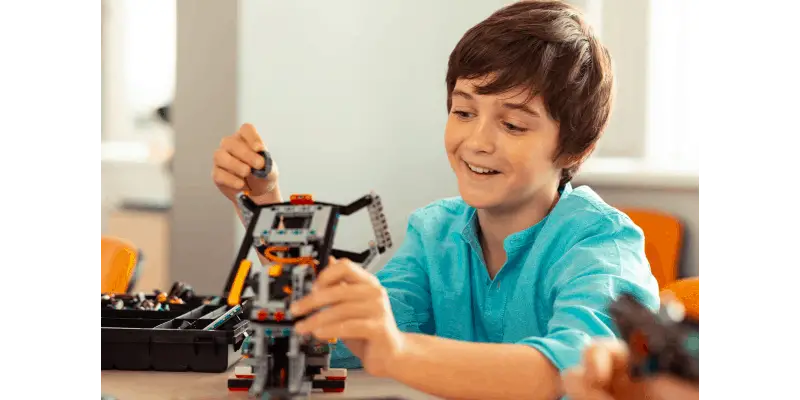
How old are your children and how much do you want them to be able to play and program these robots themselves?
The age ranges are mentioned in the reviews above and you can already see how varied they are. Most kids will start being introduced to coding from early years primary education but if you already have an eager STEM expert in your house, they may want something more challenging.
Cost
Some of the toys above may make a substantial dent in your bank balance but if you think of the cost per use, or even better, cost per knowledge gained, then sometimes it’s worth spending a decent amount. To get a lifetime of fun, games, and more importantly, learning potential with these robots in an ever-expanding digital world, then it’s time to stop thinking about how much you’re spending on a toy and instead think about how much you’re investing in education that’s practical and fun.
Frequently Asked Questions
Will I get everything I need in the box?
Short answer: no. Most of these toy robots require apps to be able to program and code with some requiring the app for assembly instructions. Before buying, always make sure that your devices are compatible with the apps available by checking out their website. Some will also require batteries (see the next FAQ for more information).
Do they need batteries?
Some do, while some don’t. Some come with charging docks that you will need to use frequently but for those that do require your old fashioned AA or AAA batteries, I highly recommend you invest in a rechargeable battery pack.
How do I learn to use my robot?
Trial and error. The programming and coding apps that robots come with nowadays are very accessible and are often designed for learning on the go. The easiest way to get your robot to do what you want it to do is to simply have a go and see what happens. It might be worth engaging with the online community where you will find loads of people sharing hints and tips on how to get the most out of your robot toy.
Last update on 2024-04-24 / Affiliate links / Images from Amazon Product Advertising API

